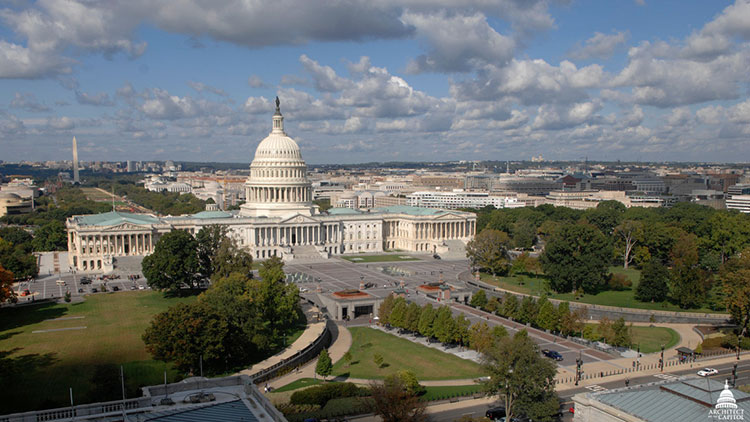Bill Reining In Chevron Deference Introduced

The smarter way to stay on top of broadcasting and cable industry. Sign up below
You are now subscribed
Your newsletter sign-up was successful
In what is being billed as a bicameral effort, a group or Republican Senators and House members—including Sen. Chuck Grassley (R-Iowa), chairman of the powerful Judiciary Committee—have introduced a bill that takes aim at the Chevron deference accorded federal agency expertise.
“For too long, unelected bureaucrats have relied on Chevron to expand their own authority beyond what Congress ever intended. This has weakened our system of checks and balances and created a recipe for regulatory overreach," said Grassley of the Separation of Powers Restoration Act. "The Constitution’s separation of powers makes clear that it is the responsibility of Congress, as the People’s representative, to make the law. And it’s the job of the courts—not the bureaucracy—to interpret the law. This bill helps to reassert those clear lines between the branches. By doing so, it makes the government more accountable to the People and takes a strong step toward reining in the regulators.”
The bill would only tweak the language in the U.S. code on judicial review of agency actions, but it makes a big difference.
The languagecurrently reads: "To the extent necessary to decision and when presented, the reviewing court shall decide all relevant questions of law, interpret constitutional and statutory provisions, and determine the meaning or applicability of the terms of an agency action."
The bill would change "all relevant questions of law, interpret constitutional and statutory provisions" to "de novo all relevant questions of law, including the interpretation of constitutional and statutory provisions and rules."
"De novo" means deciding from the beginning, or starting over, rather than starting from a point of deference to an agency judgment. The idea of the bill, as Republicans see it, is to take an agency's thumb off the scale of justice.
In addition to Grassley, others introducing/backing the bill included Sens. Orrin Hatch (R-Utah), John Cornyn (R-Texas), Mike Lee (R-Utah) and Ted Cruz (R-Texas).
The smarter way to stay on top of broadcasting and cable industry. Sign up below
The issue of Chevron has often come up regarding how the FCC exercises its regulatory authority.
Chevron is the deference that has been accorded agencies—per Supreme Court precedent—to interpret vague statutes. New Supreme Court justice (and Republican appointee) Neil Gorsuch, for one,has arguedthat while agencies should get deference for technical expertise in their subject areas, it should be up to the courts to do the clarifying of vague statues and that giving federal agencies that power runs into equal protection and separation of powers issues. The issue was explored during Gorsuch's confirmation hearings, presided over by Grassley.
Democrats fear that weakening Chevron is a way to weaken the power of those agencies to protect air, water, privacy and much more—critics of the FCC's broadband regulation under former Democratic chairman Tom Wheeler, for example, argued that the commission was exceeding its authority in its interpretation of statute.
Contributing editor John Eggerton has been an editor and/or writer on media regulation, legislation and policy for over four decades, including covering the FCC, FTC, Congress, the major media trade associations, and the federal courts. In addition to Multichannel News and Broadcasting + Cable, his work has appeared in Radio World, TV Technology, TV Fax, This Week in Consumer Electronics, Variety and the Encyclopedia Britannica.

